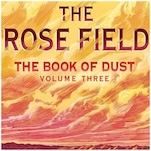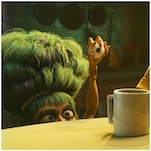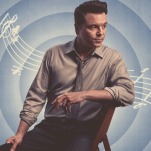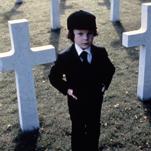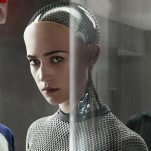The 25 Best Novels of 2017
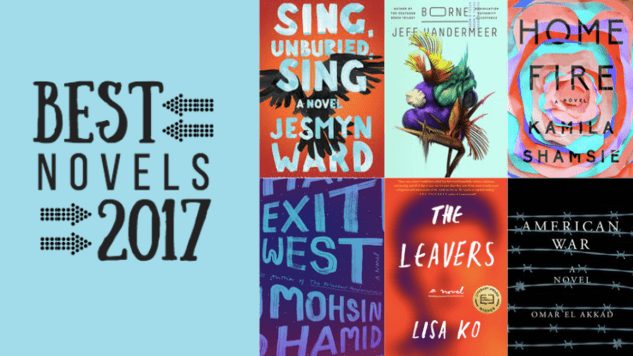
We are thrilled to list our top picks for the best novels of 2017. Tackling everything from immigration to motherhood to the origins of a giant flying bear, these books promise enthralling stories for every reader. And while these are by no means the only extraordinary books published this year, these 25 were our absolute favorites.

 25. The Seven Husbands of Evelyn Hugo by Taylor Jenkins Reid
25. The Seven Husbands of Evelyn Hugo by Taylor Jenkins Reid
Taylor Jenkins Reid’s novel is a gripping story following Evelyn Hugo, a legendary Cuban American actress haunted by secrets. And when Evelyn agrees to exclusively reveal her secrets to Monique Grant, a magazine reporter who’s low on the totem pole, everyone is shocked. Why did Evelyn choose Monique? It’s hard to believe that Evelyn is fictional, as she leaps off the page with style, grace and an unbelievable amount of pluck. You’ll pick up Reid’s book expecting to breeze through it, and you’ll be blown away instead. —Swapna Krishna

 24. Universal Harvester by John Darnielle
24. Universal Harvester by John Darnielle
The second novel from The Mountain Goats’ frontman delivers an unsettling journey to the late-1990s era of video rental stores and dial-up Internet, a recent past that feels strange enough to carry this edgy mystery. In small-town Iowa, a video clerk searches for answers after discovering that someone has been splicing homemade footage into the store’s VHS tapes. With John Darnielle’s inimitable voice driving a narrative that’s both sad and frightening, Universal Harvester explores loss, grief, resiliency and the never-ending search for human connection. —Eric Swedlund

 23. What We Lose by Zinzi Clemmons
23. What We Lose by Zinzi Clemmons
Related in a collection of vignettes, What We Lose follows a young woman coming-of-age while losing her mother to cancer. Zinzi Clemmons’ protagonist, who is caught between two worlds with a South African mother and an African American father, navigates life, love and motherhood in a poignant tale of grief. But don’t let its subject matter fool you; Clemmons laces despair with humor and anxiety with comfort. What We Lose revels in the fact that there isn’t a correct way to grieve, resulting in an emotional story exploring the meaning of identity. —Frannie Jackson

 22. Waking Gods by Sylvain Neuvel
22. Waking Gods by Sylvain Neuvel
Countless authors have answered the question, “What if we’re not alone in the universe?” But Sylvain Neuvel’s response sets him apart. His Themis Files series, launched in 2016 with Sleeping Giants and continued this year with Waking Gods, begins with a deceptively simple premise: a child discovers a giant metallic hand buried in South Dakota. What follows is a global hunt for the artifact’s significance, relayed through interviews conducted by an unnamed man (who quickly becomes a favorite character) and peppered with transcripts, journal entries and other forms of media. Sleeping Giants may have debuted his thrilling saga, but Waking Gods proves that Neuvel’s scope is more daring than readers could have imagined. —Frannie Jackson

 21. The Essex Serpent by Sarah Perry
21. The Essex Serpent by Sarah Perry
Sarah Perry’s The Essex Serpent was one of the most acclaimed books of 2016 in the UK—and it’s easily one of the most engrossing works of historical fiction in recent years. Released in the U.S. this summer, the novel follows Cora Seaborne’s travels to a small Essex village after her husband’s death in 1893. When she arrives, Cora learns about a mysterious beast called the Essex Serpent, which is rumored to be responsible for a recent death and other strange occurrences. Lively and brimming with eclectic characters, Perry’s novel perfectly captures a sense of time, place and peril. —Bridey Heing

 20. Ill Will by Dan Chaon
20. Ill Will by Dan Chaon
The title of Dan Chaon’s novel hails from the pervasive dread protagonist Dustin feels after his wife’s terminal illness, but that’s not the first traumatic loss in his life. Dustin’s family were victims of a horrific murder during the height of the “Satanic Panic” in the ‘80s, and his step-brother Rusty was convicted of the crime, partially on Dustin’s vivid testimony of sexual abuse and ritual violence. When Rusty is exonerated by DNA evidence almost 30 years later, Dustin, whose psychology practice is based on memory recall, is stuck assessing how his own memories have failed him. The connective tissue of the novel, which switches time periods and perspectives, is that no one can say for sure what is true and what they’d simply like to be true. Chaon succeeds at capturing the body count and darkness of the psychological thriller, but he’s uninterested in the genre’s tidy answers, arriving instead at a family drama where doom feels at once preventable and unavoidable. Steve Foxe

 19. American War by Omar El Akkad
19. American War by Omar El Akkad
Omar El Akkad’s novel imagines a future mere decades from now, one in which the U.S. is divided by a second Civil War. Opening with protagonist Sarat Chestnut’s tumultuous childhood as the fighting intensifies, American War explores how divisive ideology—and homegrown extremism—festers into a destructive cancer on society. And what’s most frightening about El Akkad’s novel is that it describes a future that could be our own. If hatred continues to gain political clout and weapons continue to be used by citizens against citizens, Sarat’s reality could be more than a haunting tale. The genius of El Akkad’s prose is that it can be read both as a thrilling dystopian novel and as a sobering examination of American society. —Frannie Jackson

 18. The Thirst by Jo Nesbø
18. The Thirst by Jo Nesbø
In his 11th book featuring Detective Harry Hole, Jo Nesbø deepens the already-complex portrait of his antihero. Hole has a career’s worth of monsters haunting his dreams, even after he’s left the day-to-day investigative work behind. And Nesbø takes this even further in The Thirst, pitting the alcoholic and insubordinate Hole against the most sadistic killer yet. Nesbø’s a master of style, balancing action and tension in a plot haunted by a demonic tattoo and ritualistic blood drinking. But his greatest strength as a novelist is the way he places two opposing forces in battle: the perverse criminal and the compulsive detective. In Nesbø’s consistently excellent Hole series, The Thirst may well be the pinnacle. —Eric Swedlund

 17. The Stone Sky by N.K. Jemisin
17. The Stone Sky by N.K. Jemisin
N.K. Jemisin’s Broken Earth trilogy, which won the Hugo Award for books one and two, comes to a thrilling conclusion in The Stone Sky. Beyond its creative magic (which is absolutely stunning) and its impossible stakes (the world is ending), Jemisin’s trilogy has always centered on familial relationships. And that’s why it not only succeeds, but triumphs. Our world needs more three-dimensional mothers in fiction, women who are creative and fierce and broken and driven and human. Essun, Jemisin’s incredible protagonist, is all of these things—with some of the most kickass magical abilities in the fantasy genre. The Stone Sky delivers an enthralling finale to this epic series, one brimming with adventure and heart. —Frannie Jackson

 16. The Golden Legend by Nadeem Aslam
16. The Golden Legend by Nadeem Aslam
At The Golden Legend’s core is a deep understanding of the centuries-long conflict between Muslims and Christians—and how it continues to be exploited by men in power. Set in Pakistan, Nadeem Aslam’s novel follows several characters whose lives are uprooted when an American man kills innocent Muslims. It’s a narrative that insists on a very simple but terrifying fact: everything is political. God, love, family, justice, faith, power, friendship, secrets—acts of kindness and acts of evil are all informed by politics. And still, The Golden Legend dazzles as much as it devastates. As characters wrestle with the truths of their worlds, Aslam succeeds in reflecting these truths in his prose. And the reader walks away better—and with more understanding—for such an intimacy with such unforgettable characters as these. —Shannon M. Houston

 15. The River of Kings by Taylor Brown
15. The River of Kings by Taylor Brown
Taylor Brown’s The River of Kings is an almost impossibly vivid novel, rendering Georgia’s Altamaha River and the woods that surround it with spellbinding intensity. Brown’s book recounts two Altamaha River adventures in parallel: the modern-day journey of the fractious Loggins brothers to scatter their hard-ass shrimper father’s ashes, and a fictionalized recasting of the French encounter with Timucuan natives at Fort Caroline in the 1560s. Like Cormac McCarthy and Annie Proulx, Brown possesses rare and wild gifts, writing with an arresting precision and unremitting intensity that can keep a reader’s jaw clenched for books at a time. —Steve Nathans-Kelly

 14. Borne by Jeff VanderMeer
14. Borne by Jeff VanderMeer
Post-apocalyptic dystopian fiction can be exhausting, especially in today’s political climate. But with Borne, Jeff VanderMeer has created a narrative so refreshing that it defies genre clichés. The novel follows Rachel, a scavenger in a city ruled by malevolent forces and terrorized by a giant flying bear. When she discovers a bizarre creature and chooses to protect it—against her better judgment—she catalyzes events with alarming consequences. The creature, nicknamed Borne, proves both wondrous and chilling, proving that VanderMeer has crafted one of the most compellingly original characters in years. —Frannie Jackson

 13. The Power by Naomi Alderman
13. The Power by Naomi Alderman
The Power boasts an extraordinary premise: girls gain the ability to generate electric shocks, making them the most physically powerful people on the planet. In striking prose, Naomi Alderman then imagines how the power dynamics between men and women would shift in the wake of this phenomenon. Barring any spoilers, the results are thrilling. And in the midst of the #MeToo movement, this novel has arrived at the perfect time. —Frannie Jackson

 12. The Destroyers by Christopher Bollen
12. The Destroyers by Christopher Bollen
Christopher Bollen’s literary thriller is an exemplar of the form—one of those rare novels that not only embraces all the conventions of its genre but elevates them. The Destroyers opens as Ian Bledsoe joins childhood friend Charlie Konstantinou, member of a Cypriot construction dynasty, on the Greek isle of Patmos. When Charlie disappears, Ian is left to piece together his place among the island’s coterie of souls while investigating his friend’s fate. Yachts and reformed actresses aside, by availing itself to the twin tragedies of the refugee and Greek economic crises, The Destroyers rises above the wealthy’s luxe dramas and slots instead into the plights of a cosmopolitan world. —B. David Zarley

 11. Class by Francesco Pacifico
11. Class by Francesco Pacifico
Francesco Pacifico’s second novel to appear in English, Class, is a humorous look at a group of wealthy Roman hipsters who alight on 21st-century New York in hopes of finding some validation for their directionless lives. Yet underneath that comic crust is a more complicated tale of forgiveness, restlessness and death. Pacifico’s ability to slyly resuscitate the comedy of manners while deploying a Faulknerian multiple-consciousness narrator—all while thoroughly inhabiting the present moment of conspicuous consumption—has expanded the bounds of contemporary fiction. —Lucas Iberico Lozada

 10. Oathbringer by Brandon Sanderson
10. Oathbringer by Brandon Sanderson
With The Way of Kings, Brandon Sanderson introduced his most epic fantasy world yet, where spren—the personification of human ideas in fairy-like form—add a touch of magic to an oppressive feudal society. This year saw the third installment of The Stormlight Archive series, Oathbringer, and it deepens the mythology of the nations of Roshar. Sanderson is a master of world building, making the fantastical elements feel natural. But what makes this series worth reading are its characters and their struggles: Kaladin is shaped by the injustice he’s seen and his desire to protect. Shallan is privileged but sheltered and abused, and her newfound abilities leave her both empowered and confused. And Dalinar—who gets much of the spotlight of this third book—is trying to find redemption from a violent past. There is epic fantasy for non-fantasy fans; this is not that. But it is epic fantasy done so well that those looking for a little magic in their lives will be hard pressed to find a better world to visit. —Josh Jackson

 9. Little Fires Everywhere by Celeste Ng
9. Little Fires Everywhere by Celeste Ng
Following her acclaimed debut, Everything I Never Told You, Celeste Ng has returned with a sophomore novel exploring racism, classism, privilege and family. Little Fires everywhere is set in late-‘90s Shaker Heights, Ohio, an affluent planned community that prides itself on its progressive ideals and inclusivity. But soon the community’s curated façade cracks as two white women become entangled in opposing sides of a custody battle, fought between a Chinese mother who abandons her baby and a white couple who tries to adopt the child. Ng guides her characters through murky territory of racism and motherhood with compassion, revealing that Little Fires Everywhere might just be the signpost that we need today. It points a way forward with the gentle suggestion that sometimes doing the right thing means breaking some rules. —Jane Huang

 8. Pachinko by Min Jin Lee
8. Pachinko by Min Jin Lee
In her much anticipated second novel, Min Jin Lee traces a Korean family across four generations as they search for home. Pachinko follows its cast across the globe, capturing the zeitgeist of major historical periods like Japanese colonial rule, World War II, the Korean War and the AIDS crisis by demonstrating how global events become personal struggles. Casting history as a backdrop for narratives of resilience and loss, Lee’s novel explores immigrants’ mechanisms of internalized oppression and the fraught position of being a “well-behaved” member of a maligned group. The result is a timely narrative about striving for a better life while being resigned to a second-class status. —Christine An

 7. The Lucky Ones by Julianne Pachico
7. The Lucky Ones by Julianne Pachico
By turns surreal, confounding, terrifying and improbably funny, The Lucky Ones explores Colombia’s specter of guerilla violence through a few young women’s adventures. While the characters’ common history as boarding school students provides a loose framework for the novel’s interlocking stories, The Lucky Ones presents a view of the conflict that is endlessly fascinating, but more prism than lens. Its perpetual perch on the edge of disaster leaves the reader in a state of dread, but Julianne Pachico creates a palpable anguish with a light touch, a combination that makes this astounding first novel as irresistible as it is unnerving. —Steve Nathans-Kelly

 6. Home Fire by Kamila Shamsie
6. Home Fire by Kamila Shamsie
A contemporary novel following three British siblings of Pakistani descent, Home Fire examines the emotional and physical cost of the West’s discrimination towards Muslims. Kamila Shamsie’s novel opens as one of the siblings is profiled and then interrogated at the airport, slowly revealing the daily indignities the characters are forced to endure. These incidents snowball as another sibling is suspected of joining a terrorist organization, turning their lives into a nightmare. From the infuriating opening to the absolutely stunning conclusion, Home Fire delivers a haunting family saga that will stick with you for years. —Frannie Jackson

 5. Lincoln in the Bardo by George Saunders
5. Lincoln in the Bardo by George Saunders
After decades of brilliant work in the brief yarn vein, George Saunders has released his first novel. Set in 1862, Lincoln in the Bardo features the 16th President and a Washington graveyard full of ghosts—including the president’s recently departed son, Willie Lincoln. Saunders’ host of voices provides us with a chance to see what lies on the doorstep of the beyond, and it’s a humdinger; spectral psychology is alternatively denial and dismemberment of the things of this world. By turns moving and hilarious, Lincoln in the Bardo proves there is life after death—and more than short stories in the splendid Saunders. —Jason Rhode

 4. Exit West by Mohsin Hamid
4. Exit West by Mohsin Hamid
Mohsin Hamid has always had a finger on the global pulse, publishing stories hot on the heels of the latest headlines. And though Exit West was completed nearly a year before Trump announced a travel ban on Muslim-majority countries, its timing is perfect. The novel opens in an unnamed city (feasibly located in one of said countries) that’s tipping towards civil war and swollen with a sea of refugees. Then we meet Saeed and Nadia, young adults falling in love just as their world is falling apart. Their hope is kindled by rumors of mysterious doorways that transport people to undetermined locations. These doors have supernatural powers, but the way Hamid weaves his story, you’ll believe that they’re real. And, in a way, they are. —Jeff Milo

 3. The Leavers by Lisa Ko
3. The Leavers by Lisa Ko
When author Barbara Kingsolver announced that Lisa Ko had earned the 2016 PEN/Bellwether Prize for Socially Engaged Fiction, she called Ko’s then un-published novel, The Leavers, “perfectly of this moment.” Kingsolver made the announcement during a presidential campaign in which the eventual winner prided himself on bigoted, xenophobic behavior and promises of mass deportations. The Leavers examines the toll that a harsh approach to immigration policy exacts on families, revealing how destructive it can be when white Americans pressure immigrants to assimilate. At the novel’s center is the fallout from one event: Polly, an illegal Chinese immigrant, goes to work one day in New York and never returns home to her 11-year-old son. A white couple with the best intentions and the worst possible instincts adopt the boy, catalyzing a chain of events that catapult the reader into a remarkable, timely story. —Stuart Miller

 2. The Twelve Lives of Samuel Hawley by Hannah Tinti
2. The Twelve Lives of Samuel Hawley by Hannah Tinti
In the nine years since her debut novel, The Good Thief, was published, Hannah Tinti has crafted another masterpiece. The Twelve Lives of Samuel Hawley explores a captivating father-daughter relationship, weaving the pair’s saga through two narrative timelines. The first follows a young girl named Loo as she comes of age in a small Massachusetts town. The second reveals her father’s past through 12 stories chronicling the events that led to his 12 bullet wounds. The result is a mesmerizing literary thriller, with Tinti building the tension as both timelines count down to the final gunshot. —Frannie Jackson

 1. Sing, Unburied, Sing by Jesmyn Ward
1. Sing, Unburied, Sing by Jesmyn Ward
“Sorrow is food swallowed too quickly, caught in the throat, making it nearly impossible to breathe.”
Sorrow rests at the heart of Jesmyn Ward’s National Book Award-winning novel, permeating a moving tale that examines poverty, racism, drug abuse and incarceration in the United States. At the core of Sing, Unburied, Sing is a drug-addicted mother and her 13-year-old son, both narrators who reveal the harsh realities of their lives in Mississippi. Their distinct voices, brilliantly rendered by Ward, illuminate two sides of the same story, bringing depth to a lyrical family drama.
By turns exquisite, heart-wrenching and stunning, Sing, Unburied, Sing proves to be challenging—but necessary—reading in 2017. —Frannie Jackson

Looking for more reading recommendations? Check out our lists of the best nonfiction books, best short story collections, best audiobooks and best Young Adult books of 2017.
